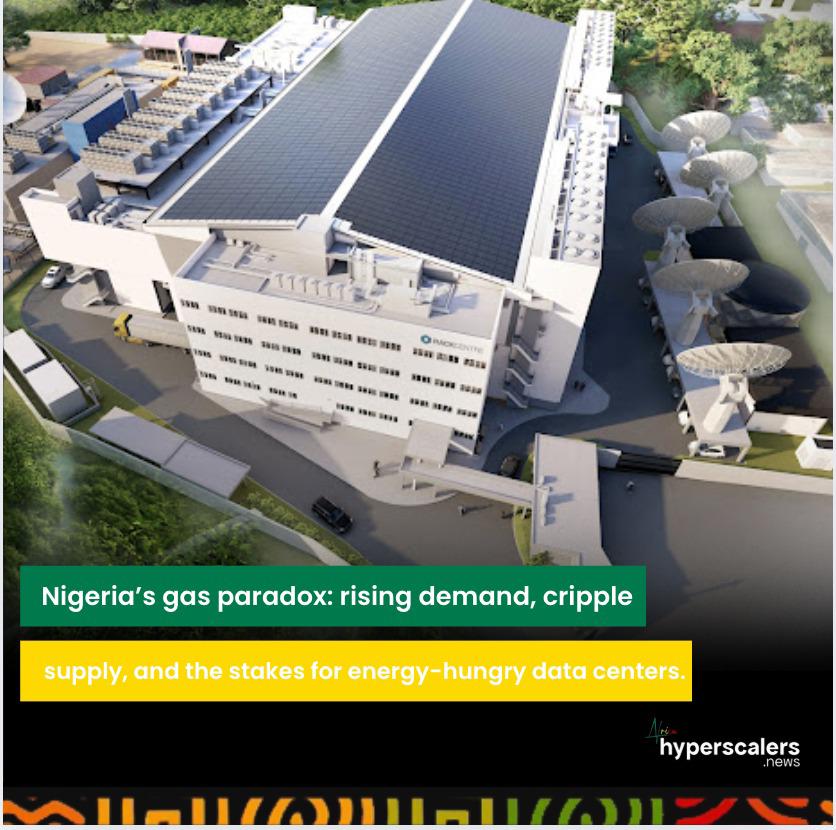Nigeria is in the midst of an energy pivot. As electricity demand surges across industries, from manufacturing to digital infrastructure, natural gas is emerging as a cornerstone of the country’s energy future. With new initiatives underway, including the expansion of commercial and industrial gas usage, major transmission trunkline projects, compressed natural gas (CNG) rollouts, and gas-fed power plants, Nigeria has demonstrated a readiness for gas and is expected to add over 1,000 million standard cubic feet per day (mmscf/d) in new gas demand over the next few years.
But a looming supply crunch threatens to derail this progress.
Nigeria accelerates gas strategy with CNG push and infrastructure Boom
Nigeria is ramping up its natural gas ambitions under the Federal Government’s “Decade of Gas” initiative, with a dual focus on expanding gas infrastructure and transitioning to cleaner, cheaper fuels. A centerpiece of this strategy is the $2.8 billion Ajaokuta–Kaduna–Kano (AKK) pipeline, which recently crossed the River Niger and is expected to supply natural gas to key northern cities for power, industrial, and residential use.

The government is driving an aggressive rollout of Compressed Natural Gas (CNG) to displace petrol in transportation, through the Presidential CNG Initiative. CNG stations and workshops are multiplying across major cities, with free conversion drives and top-up prices lower than petrol. Partnerships with private players like Arete LNG and Axxela are also enabling mini-LNG plants and fueling stations across underserved regions.
The optimism around the importance of gas is high, fueled by the country’s gas reserves, with experts asserting that the transition could reshape Nigeria’s energy landscape, curbing fuel subsidies, reducing emissions, and strengthening energy security. The pioneer Minister of State for Petroleum Resources (Gas) and national gas proponent, Rt. Hon. Ekperikpe Ekpo has facilitated noteworthy investments in midstream gas, particularly in CNG and LPG.
The Gas gold rush – without the gold
Despite the optimism around gas as a cleaner and more scalable energy source, and Nigeria’s aggressive push to expand domestic gas usage, concerns are growing about a lack of upstream investment to support the surge in demand.
Afolabi Akinrogunde, Senior Deal Lead and Business Opportunity Manager at Shell Nigeria, believes that the gas value chain may be broken.
“Something’s not adding up in Nigeria’s domestic gas sector. We’re planning and launching dozens of new demand-side projects: new power plants, C&I usage expansion, progress with major gas transmission trunklines construction, and the CNG rollout backed by the Presidential Committee. … But where’s the upstream supply to match this?” he queried.
According to him, the ongoing initiatives would drive over 1,000 mmscf/d in new demand in the coming years, but without upstream production growth, ongoing gas projects could face gas shortages, operate below capacity, or shift back to more expensive fuels.
He highlighted that conversations with gas producers reveal a sobering picture: few are making fresh commitments to develop new gas fields for the domestic market. The reason? A mix of unviable pricing structures, legacy subsidy distortions, and regulatory inertia.
Data centers are betting big on gas
One sector that should be paying close attention is data infrastructure. As Nigeria’s digital economy scales rapidly, data centers, already among the most energy-intensive facilities, are shifting towards gas-based power generation to sidestep grid instability and diesel cost volatility. Rack Centre, a Nigerian data center operator, has already started using gas. It recently launched its 12MW LGS2 hyperscale and AI-ready facility, which runs on a mix of gas and diesel, with future plans to incorporate solar energy. Lars Johannisson, Rack Centre CEO, claims it is one of the most energy-efficient in the region.
“Rack Centre has taken the innovative approach to embark on an energy sufficiency drive by installing gas turbines for our operations to complement the diesel-powered generators, and now, with the upcoming solar power installation within our LGS2 data center, we are the most energy sustainable data center within the region”, he said.
Digital infrastructure expert and Chief Executive Officer at Geniserve, Gbenga Adegbiji, corroborates the importance of gas.
“As we enter into the era of AI and machine learning, the data center industry is faced with ultra-high energy demand on one side and the pressure to be green and sustainable on the other side. The only solution that satisfies both pressures is gas-based power generation. This is undoubtedly a cheaper, cleaner, and more sustainable energy solution to power the digital future, and Nigeria has it in abundance.”
Nigeria’s Gas Advantage – if it is unlocked
Nigeria’s natural gas reserves, the largest in Africa at over 200 trillion cubic feet, offer a strategic advantage. Still, as more data centers, industrial parks, and smart cities emerge, the country’s ability to match growing demand with dependable supply is under scrutiny.
Analysts warn that without significant upstream investment, Nigeria may face a major gas supply-demand imbalance by 2027. Several factors contribute to this looming gap, including non-cost-reflective pricing that discourages gas field development, government subsidies and controlled pricing that distort market signals, limited pipeline infrastructure that restricts efficient distribution, and inflexible contract structures that deter suppliers from taking investment risks.
The gas opportunity is real, but only if Nigeria acts fast to balance supply with demand.
The growth of Nigeria’s digital and industrial economy hinges not just on access to gas, but on reliable access. With infrastructure and cloud capacity rising, and data centers becoming central to national competitiveness, energy security can’t be an afterthought.
As one observer put it: “If you’re relying on gas in Nigeria, you need to plan like you’re in a high-risk, high-opportunity market. Because you are.”




